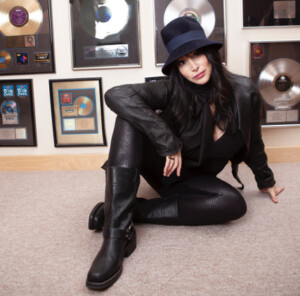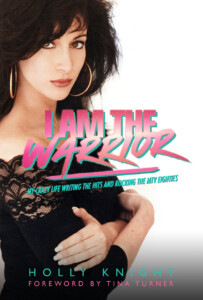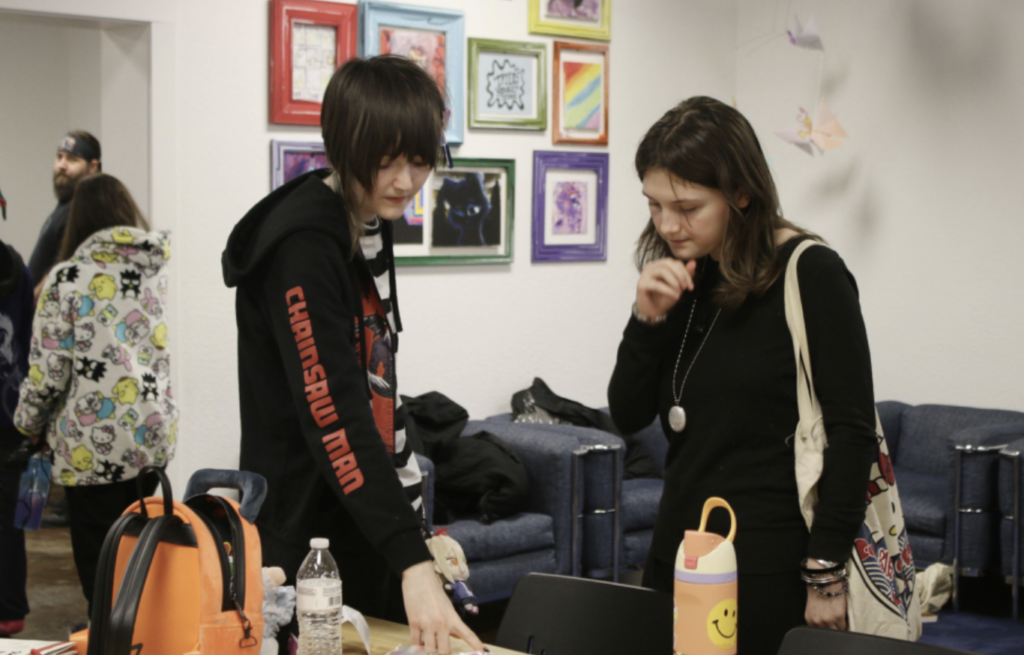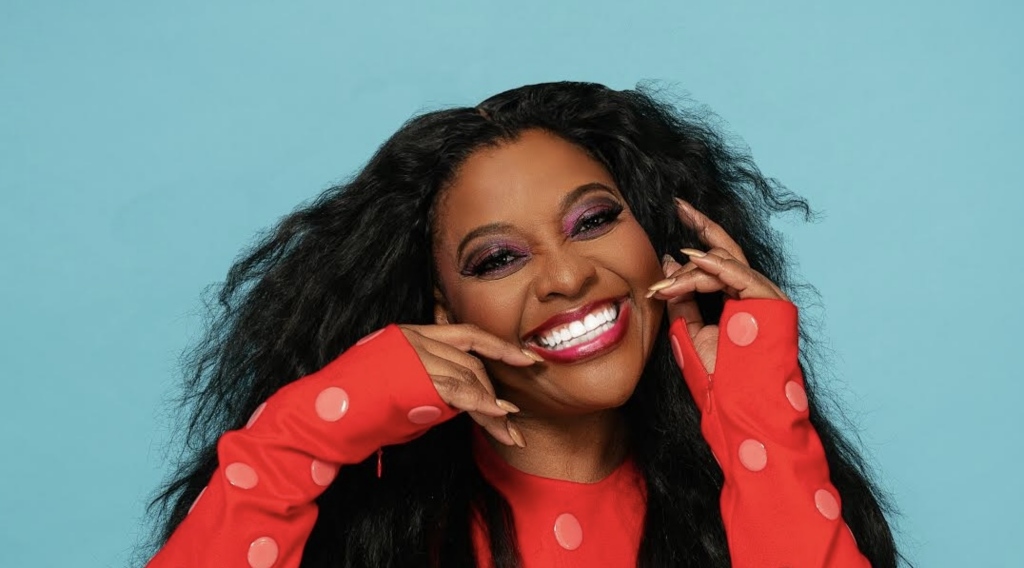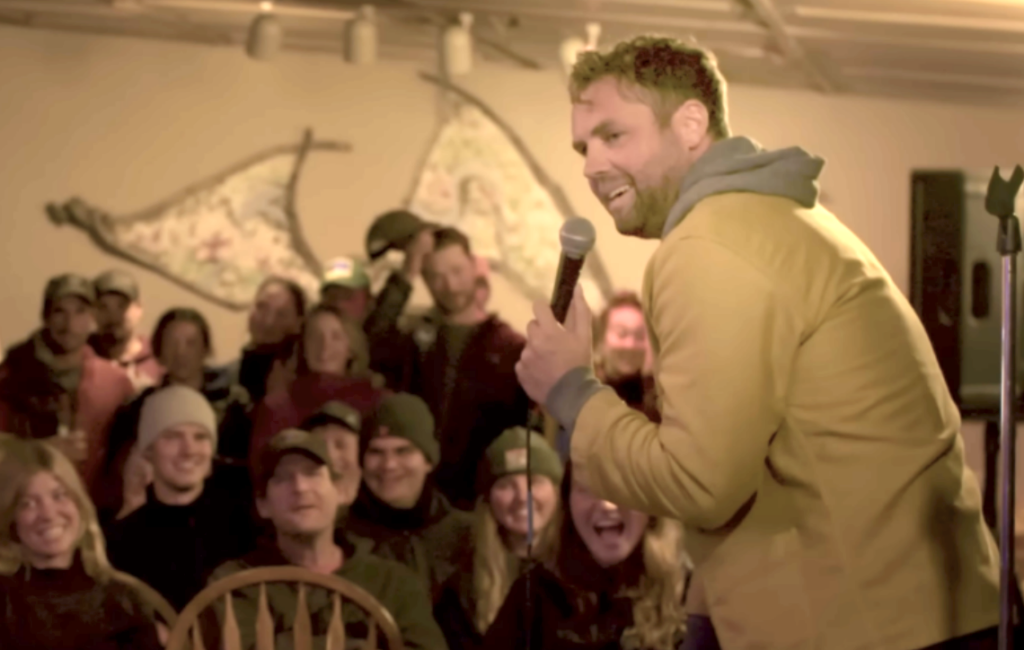In her new book I Am The Warrior, songwriter/rocker Holly Knight dishes on all her MTV hits
If you’re a product—or by-product—of the MTV video era, it would be hard to fathom a world without songwriter Holly Knight. She is the hitmaking lyricist behind countless ’80s mega-anthems—a majority of which you secretly know by heart. (“Love Is a Battlefield,” anyone?)
In a world that was heavily dominated—and unduly influenced—by men at the time, Knight paved the way for women’s voices to be heard loud and clear. The musician knew exactly how to cut through musical clutter and find the perfect trifecta of iconic hooks, earworm-inducing melodies, and unforgettable lyrics just as MTV became a cultural juggernaut.
With a mile-long pedigree of Top 10 hits—like Tina Turner’s “Better Be Good To Me” and Heart’s “Never”—she quickly became synonymous with girl power long before The Spice Girls.
Now, Knight is spilling the tea on what it was like working with everyone from Bon Jovi to KISS. In her new memoir—the aptly named I Am The Warrior (yeah, she wrote that Scandal song, too)—Knight relives her ascension into the indulgent musical stratosphere of the ’80s. Knight says she took about a solid year to write the book—about 363 days longer than the average time to compose most of her hit songs.
Oh, and she’s naming names along the way. (Her burglar alarm/Steven Tyler/afterglow story is reason enough to buy the book, but she dishes dirt in almost every chapter.)
We sat down with Knight the day after the Metal Hall of Fame ceremony—“everybody was wearing black,” she quips—to talk about her ladies-of-the-’80s-centric tunes, her new book, and all those bonkers ’80s music videos. So. Much. Hairspray.
The Pitch: As you were writing this book, did you ever say “I can’t go there”—and then you went there anyway?
Holly Knight: All the time. And then I thought, “Just put it all out there!” I don’t find memoirs or autobiographies entertaining when they don’t give you stories that you want to hear—or they’re just too sanitized or too clean. And it’s like, what’s the point of that?
Did any stories not make it into the book?
Oh, yeah, absolutely. I talked to [Foreigner’s] Lou Gramm about this last night when I saw him at the award show. I didn’t do a chapter with him—even though we wrote one of my favorite songs, which was “Just Between You and Me”—because there was really nothing to write about. He’s such a nice guy, and we wrote it in a couple of days. There was really not much I could say about it. So, I didn’t end up writing about it, but I did thank him.
At the end of your book, you mention songs you wish you would have written. What song do you sing at the top of your lungs in the car or shower. You know, your shower song?
One of them would definitely have to be “ You Shook Me All Night Long” by AC/DC. Yes, in the shower. That’s one of them.
You lovingly refer to Tina Turner as your muse. You wrote nine songs for her, including the omnipresent song “The Best.” Why do you think you two clicked so well?
It’s an interesting question because we couldn’t have been more different—or have been from more different backgrounds. But we’re women, and we’re rockers in a patriarchal music business. And we’re both survivors in different ways.
We’ve both been exposed to things that have made us survivors. As I say in the book, survivors have the best stories. Some of it was unspoken. We were just simpatico, you know? It was more than just sitting around gossiping about what’s going on. I think our connection was purely musical. It’s empowering—being a woman.
Please tell us she let you wear one of her wigs.
Well, she didn’t let me wear a wig, but I had commented on how much I loved her wigs. We were in Germany, and we were in the backstage dressing room. I complimented her on her wig and the whole look, and she said, “Lemme do your hair for you.” She teased it right up. And there’s actually a picture of it in the book.
What’s a video that encapsulates one of your songs? And what’s one that missed the mark?
Let’s preface this by saying this was the ’80s. It was a time of random stuff running through videos that didn’t have a lot to do with the lyrical content, but everybody just wanted to be creative. Certainly, the directors did.
That being said, I’d have to say most of the videos to the songs I wrote missed the mark. The most classic one would have to be “The Warrior” or “Love Touch,” the one Rod Stewart did.
“The Warrior” looks like the makeup artist just painted a lightning bolt on her face. I don’t know if it was an homage to Bowie, but it just looked ridiculous that he was trying to make her look like a ninja warrior. It didn’t work.
There was one that I thought missed the mark, and I’d have to say that maybe I was wrong because it is such a quintessentially ’80s video—and that’s “Love Is a Battlefield.” At first I thought, well, Pat’s not really a dancer. It looks like they forced her to do this because everybody started dancing in videos. And the fact that she played a female escort—I was not thinking about that when I wrote that song.
I may have listened to your hook-up chapter about Steven Tyler twice because it’s so absurd and so rock and roll simultaneously. Has Steven chimed in?
Not yet. I’m hoping he’s okay with it. I don’t see why he wouldn’t be. It’s actually pretty funny and charming when you think about it. That was one of those chapters where at first, I was like; I’m not going there. And, then I thought, I have to go there.
Of all the people I spent time with, he was maybe the biggest sort of—I just liked him so much. I had such a crush on him. I think I emotionally got in my heart. I got more tied to him than anybody else I had been with.
You’ve been in Tina’s memoir, Heart’s memoir, Pat Benetar’s memoir—so, who’s memoir do you think you deserve to end up in next?
That’s a hard question. I told many of the stories—like I told the story of Bon Jovi and Rod Stewart—I don’t know if they’ll put me in their book. I think I’ve been in like eight or nine books, and I don’t know how many more I can be in.
You have to remember; many of these bands are self-contained. So, when they write a book, it’s just about that. But with me, each chapter is about a different artist with a different hit song. And I tried to choose the ones I thought had the most interesting stories.
What are you listening to right this second? What’s on your Spotify?
Are you familiar with Måneskin? I’ve loved them since they won that Eurovision competition. I think they’re fantastic. I’m listening to Dua Lipa.
Believe it or not, because I write rock music, sometimes that’s the last thing I want to listen to, so I’ve been listening to a lot of French café music. Since it’s been hard to travel throughout the pandemic—if I put on the music, I can pretend—in my kitchen—I’m in France. [laughs] As strange as that sounds.
When is the most recent time you randomly heard one of your songs play somewhere. Is it always serendipitous?
Yesterday! I pretty much hear one of my songs like almost every day—and it’s being licensed a lot. So, I see ‘em on TV. I hear ‘em in the grocery store. “Love is a Battlefield,” “Obsession, “The Warrior,” “Never”—they’re always in the grocery store.
I always wrote for women. I think I was a better writer for women than men because I would write songs the way I thought a man would say it—and then I would have a woman sing it. It was much more exciting for them when it was sort of like a guy’s vocal.
Finally, let’s talk American Bandstand. What do you remember from when you and your band Device were on with Dick Clark?
He was so nice. It was a legendary moment. I was very shy. I was kind of mumbling. Do you still have that keyboard that you strapped over your shoulder? I do. Yeah, the keytar? I made all the keys in one color, so there are no black keys. I wanted to play the keytar, because I thought it didn’t seem fair that the guitarist got to run around the stage and look cool. And then the keyboard player was stuck in the back or on the side of the stage. The keytar was the answer to that.
Interview edited for content and clarity.

